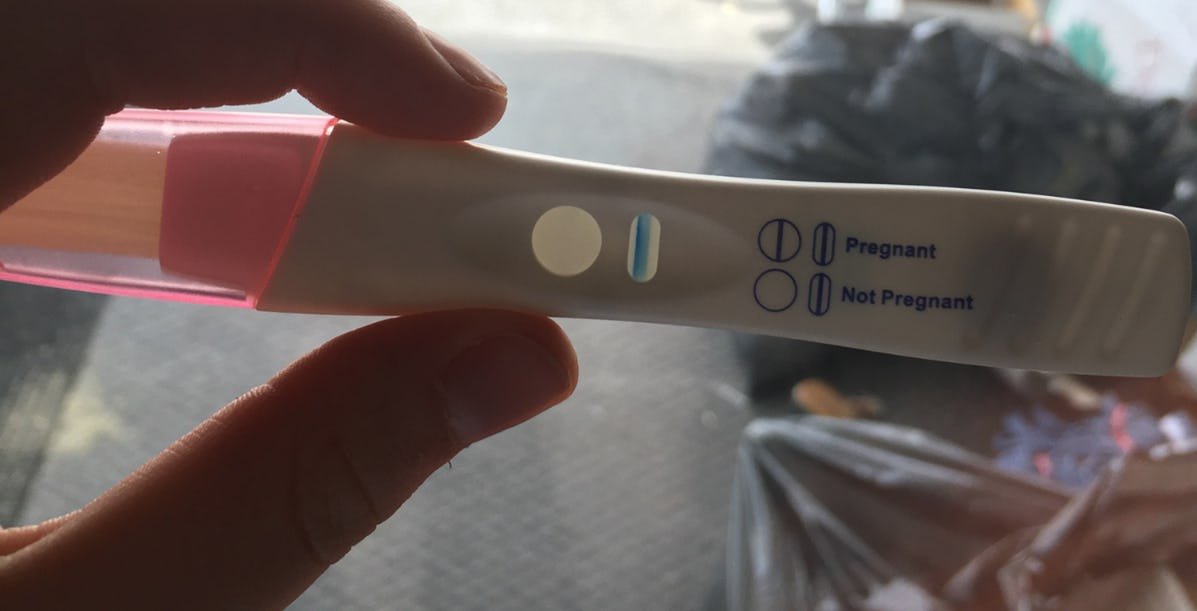This is important for all parents who are trying to have a baby as it turns out that infertility may be caused by some common things that you might be doing every day.
While some couples do have genuine infertility and other medical issues that give rise to a challenge when it comes to conceiving, some couples might be hindering the process without even realizing it. Even things such as exposure to common household chemicals can lead to difficulty when it comes to having a baby, and many aren’t even aware of it.
We’ve done the research so our readers don’t have to and have come up with 20 things that are surprisingly prevalent factors in interfering with the conception process. That’s not to say that each and every one of them could be the culprit, but it could be something to look into. And, as always, consult with a fertility doctor or OB-GYN is the best course of action. We’re just here to provide the down low on the problem at hand.
20. WAITING TOO LONG TO ATTEMPT PREGNANCY CAN REDUCE CHANCES

Of course, age is a factor in almost anything… not just infertility. However, studies are showing that couples who wait until they’re older (roughly age 25 and older, according to Very Well Family) can have a tougher time trying for a baby. Age can bring on things such as menopause (which we’ll get to in a second) and begin to slow the process of reproduction down, resulting in low fertility rates. The kicker is that this is a general rule of thumb for both men and women but, since women carry the eggs, it’s more imperative that her age is not the one contributing to a couple’s infertility.
19. MENOPAUSE IS GENETIC AND CAN START EARLY
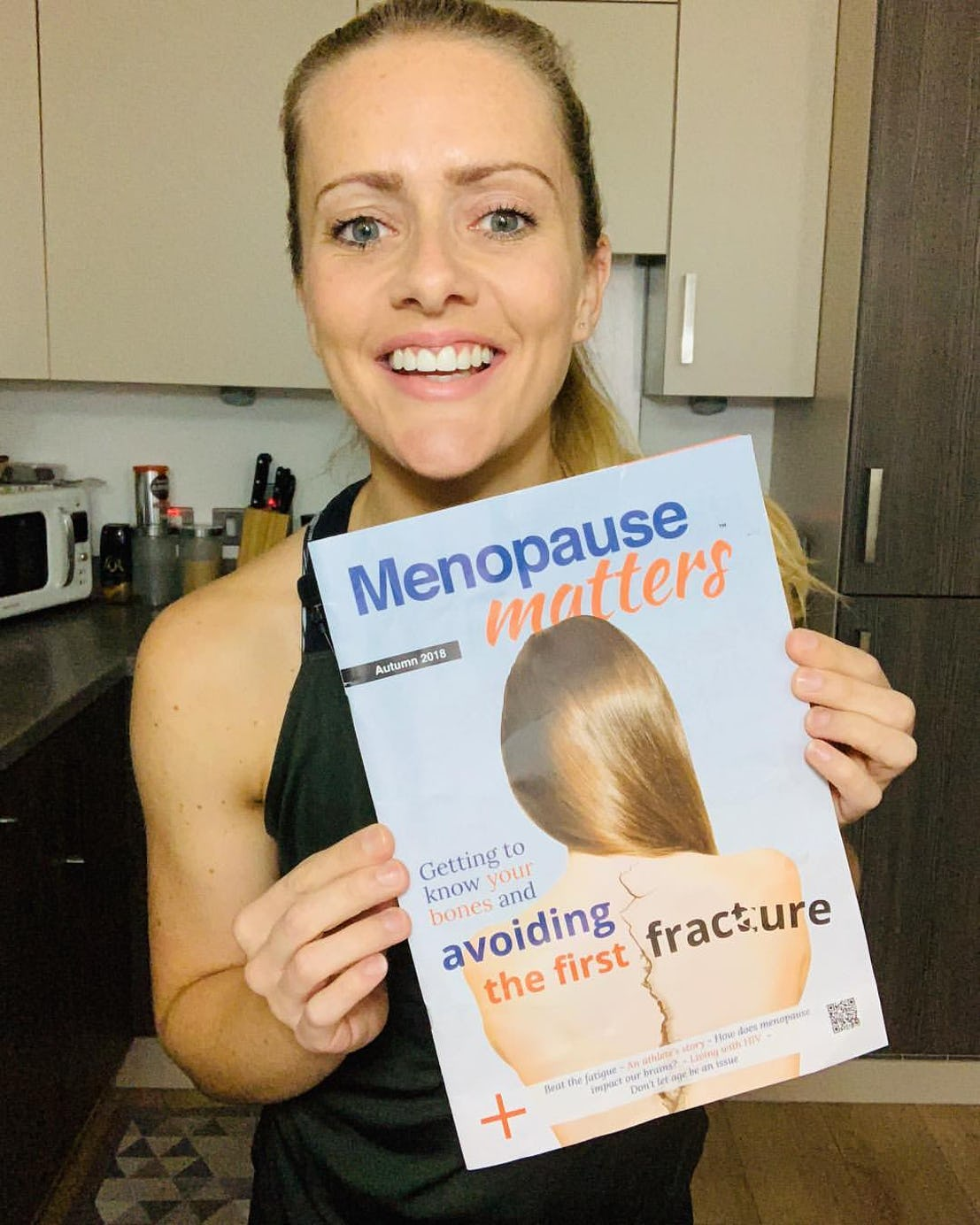
It’s true: Menopause does have roots in genetics and, more often than not, a woman’s mother’s menopause cycle can likely determine her own. Early menopause does very much exist and could be an unknown factor when it comes to infertility issues. Based on a woman’s family’s history with menopause, she might be able to pinpoint the round-about age that she’ll begin going through the same time. While a doctor will be able to provide a more in-depth idea of this, chances are, a woman will follow her family’s history and enter menopause around the same time the other women in her family did.
18. CYSTS THAT OFTEN GO UNNOTICED

It’s very possible that a woman might have a cyst (or multiple cysts) without even realizing it. From the sound of it, a cyst seems like it would cause some kind of pain or, at the very least, discomfort. However, many women get them and attribute the feeling they cause to typical Aunt Flo-style cramps. The severity of the situation when it comes to having a baby is dependent on where the cyst is located, along with which type of cyst it is. Any unusual pain should be spoken about with a doctor because they’ll be able to do a sonogram to determine exactly what’s going on down there.
17. HARDCORE EXERCISE ROUTINES CAN CAUSE IRREGULARITIES

Many people know that going hard at the gym can interfere with a regular cycle, which isn’t normally a problem — unless a couple is trying to have a baby. While working out is universally healthy, there is a fine line between working out normally and working out too much. If a baby is an ultimate goal, working out to the point where a potential mom is missing visits from Aunt Flo can absolutely delay the process and make it that much more of a challenge. When a woman isn’t releasing eggs every month, that means another entire month must go by before she and her partner have a larger chance of conceiving.
16. ENDOMETRIOSIS IS ONLY JUST NOW RECEIVING THE ATTENTION IT DESERVES

Many women are finding out that endometriosis is the cause of many things rather than just one. Not only does it prevent women from getting pregnant, but it has many other side effects, not limited to pain, irregular flows, mood swings, and discomfort when using the bathroom. The overgrowth of tissue can lead to infertility depending on where it spreads and can only be treated with pain management. In some cases, surgery can be useful in removing extra tissue in order to allow conception to happen naturally, but not all. A painful visit from Aunt Flo could mean endometriosis if the severity exceeds typical monthly levels.
15. COMMON HOUSEHOLD CLEANERS CAN BE RESPONSIBLE FOR REDUCED FERTILITY
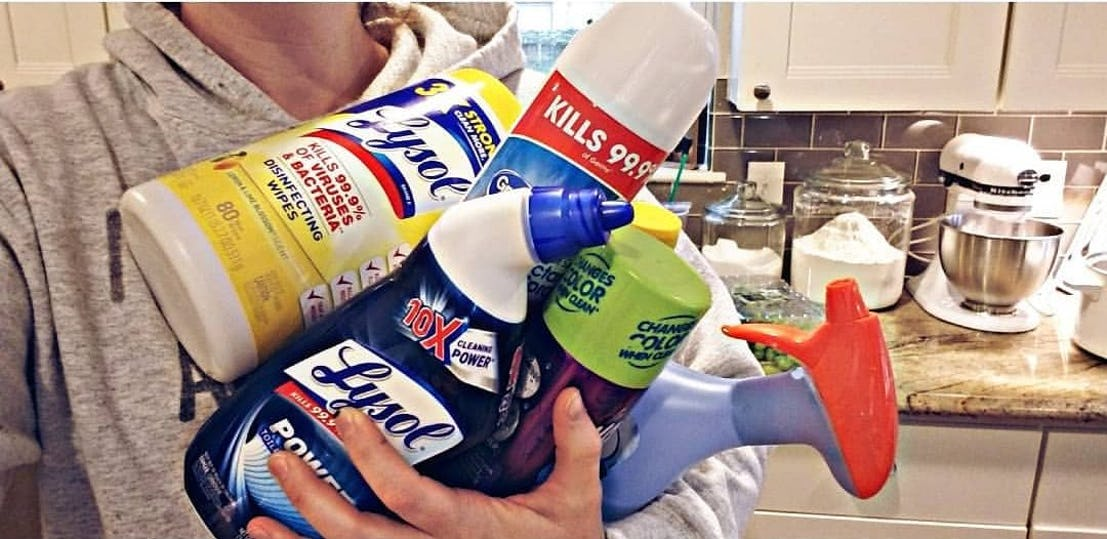
Obviously, excessive exposure or inhalation of these chemicals can be harmful to anyone, let alone couples who are trying to get pregnant. According to Bustle, via Health.com, “Exposure to pollutants, pesticides, and industrial compounds can decrease a couple’s ability to have children by up to 29 percent.” That is a rather striking statistic when things such as age, regularity, and family history are factored into it. Bustle also makes an excellent point, posing the question of going all-natural by saying if a mom wouldn’t want her baby around such chemicals, then that baby’s parents probably shouldn’t be, either.
14. BREASTFEEDING DOESN’T MAKE THINGS EASIER

This is often a little known fact as well as a huge misconception. Many women do believe that you can’t get pregnant while breastfeeding, and that’s simply not true. It is possible, which is why so many of us have siblings so close to our age. However, it is more challenging, due to the hormone levels that are still fluctuating postpartum. While not a complete impossibility, women may find that they’re struggling to conceive with their partner while breastfeeding their baby. When it comes to this issue, the method is to try, try, and try again, wait until breastfeeding has run its course, or switch to formula.
13. GOING HEAVY ON THE CAFFEINE

Ah, coffee. It’s the one thing that keeps us sane during the week, but also something that can interfere with becoming pregnant. According to The Bump, doctors have given women the okay to go for once cup of coffee per day… but that’s it. This is an especially important factoid to remember, especially if a couple is struggling in their fertility battle. Caffeine can affect many things past one cup, and doctors don’t recommend going over 12 ounces in a 24-hour span. In addition, once a woman becomes pregnant, more than one cup of coffee should really be on the back burner, anyway.
12. GUYS: LAPTOPS SHOULDN’T BE USED ON A LAP

While cats might be fans of sitting within close range of a laptop, doctors recommend that men do not follow suit. The heat generated by a laptop—especially when there’s little airflow—can actually decrease a man’s chances of getting a woman pregnant. It sounds crazy but when you think about it, it makes plenty of sense. The placement of a laptop, while it’s on a lap, is directly above, well, you know, which can definitely pose a bit of a threat to his little army. Another kicker is that studies have shown, according to Fertility and Sterility, that laptops within this close proximity that are wirelessly connected to the internet can decrease a man’s chances as well.
11. TIGHT CLOTHING CAN MAKE US LOOK GREAT, BUT NOT FEEL GREAT

This should be common knowledge but it’s not generally thought of when it comes to getting pregnant. We often cheer for men who wear clothes that fit them properly but, at the same time, men can run into the problem of having clothing that is too tight, without even realizing it. Obviously, a pair of pants or anything else that hugs the bum can pose some issues when it comes to what’s going on inside, too. If your partner is a fan of the hip-huggers then it could be a bit of an awkward conversation to have, but trust us… he’ll thank you in the long run.
10. BIRTH CONTROL CAN LENGTHEN THE PROCESS
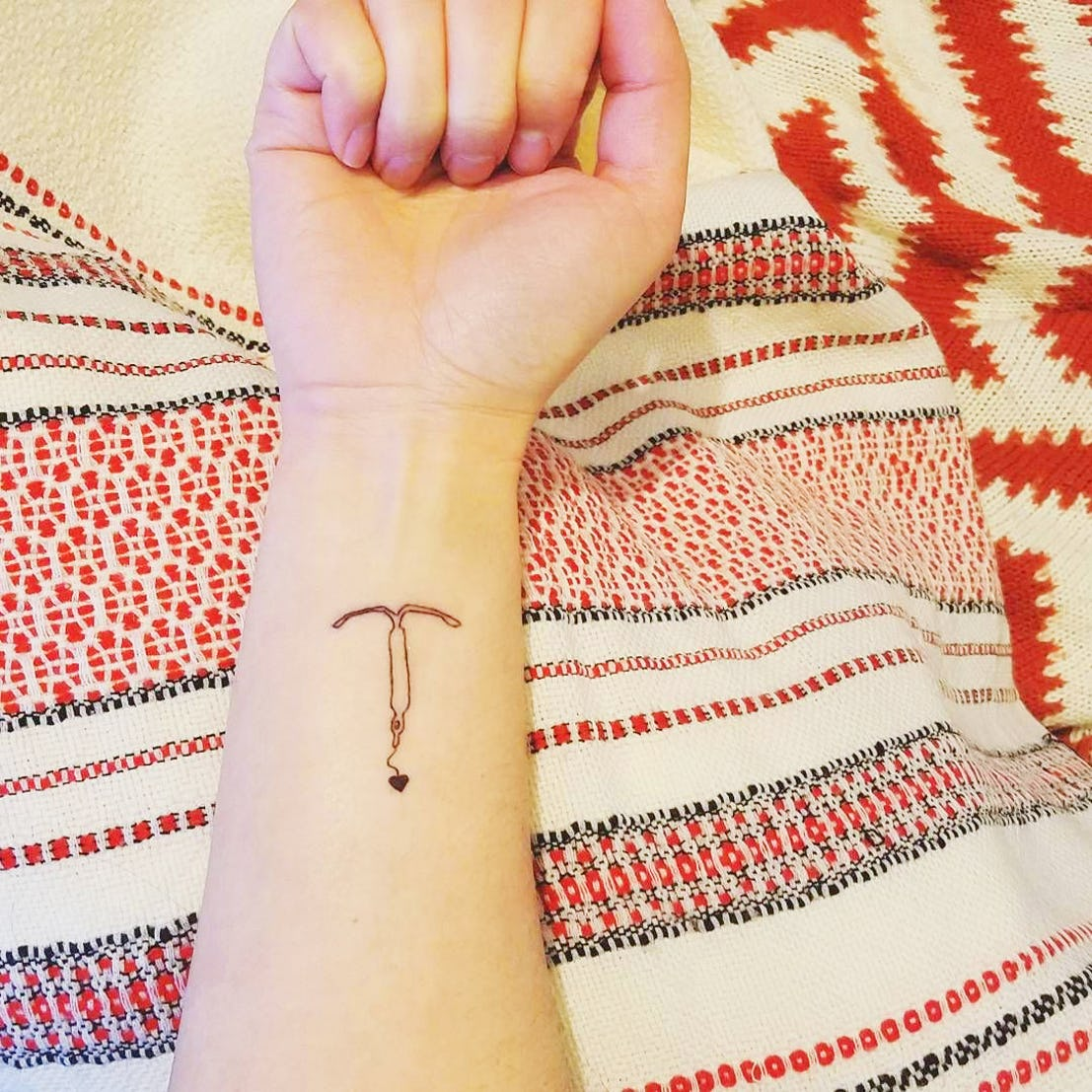
This, of course, is dependent on the type of birth control a woman is using. There are so many to choose from but historically, any type of injectable birth control has been shown to temporarily decrease the chances of becoming pregnant. Now, obviously, that’s the job of birth control — but this type, in particular, can have lingering effects that might take a bit to disappear. So if you’re trying to get pregnant after coming off this type of birth control, just know that an immediate result could be perfectly normal. As with any other non-progestin-only birth control method, those hormones linger for a bit.
9. A LITTLE THING CALLED PHTHALATES

In all likelihood, a woman will get phthalate exposure through some type of artificial chemical. The unnerving thing is that these can be found in nearly anything that’s manufactured—beauty and care products, plastics, utensils—basically anything that’s made out of artificial materials. The things to watch out for are any products that are scented (especially if they’re strong and not all-natural) as well as products containing DBP, DEP, and DMP. These three are the main ingredients that doctors recommend avoiding because they won’t only affect you, but can affect your partner, too. Going the all-natural route is the safest bet in this instance.
8. WATCH OUT FOR THOSE JACUZZI TEMPERATURES

Similar to how tight pants and heated laptops can wreak havoc on a man’s soldiers, extreme temperatures can do the same. Ah, just when you thought it was always a woman’s problem, right? Nope! Men are just as susceptible to things going wrong when it comes to infertility, and Jacuzzis definitely won’t help. Anything that has an extreme temperature—such as boiling water—can put a damper (no pun intended) on the outcome of conceiving. These temperatures can decrease counts and make it that much more challenging for a couple to become pregnant, so the best thing to do is to keep an eye on that thermometer.
7. IT’S NOT JUST PROPAGANDA: EAT THE VEGGIES

If a woman isn’t healthy, to begin with, it’s going to be that much more difficult to conceive and have a healthy pregnancy. In today’s world of microwave meals and packaged products, it’s easy to lose sight of the foods that really matter… like fruits and veggies. We get so much processed sugar and eat so many on-the-go snacks, that it’s tough to figure out what we really need. If a woman is going to make any type of health change, incorporating more veggies can only help. We know it’s tough when life is so fast-paced, but doing a bit of meal prep before bedtime can spark a drastic change.
6. ORAL HEALTH IS JUST AS IMPORTANT AS OVERALL HEALTH
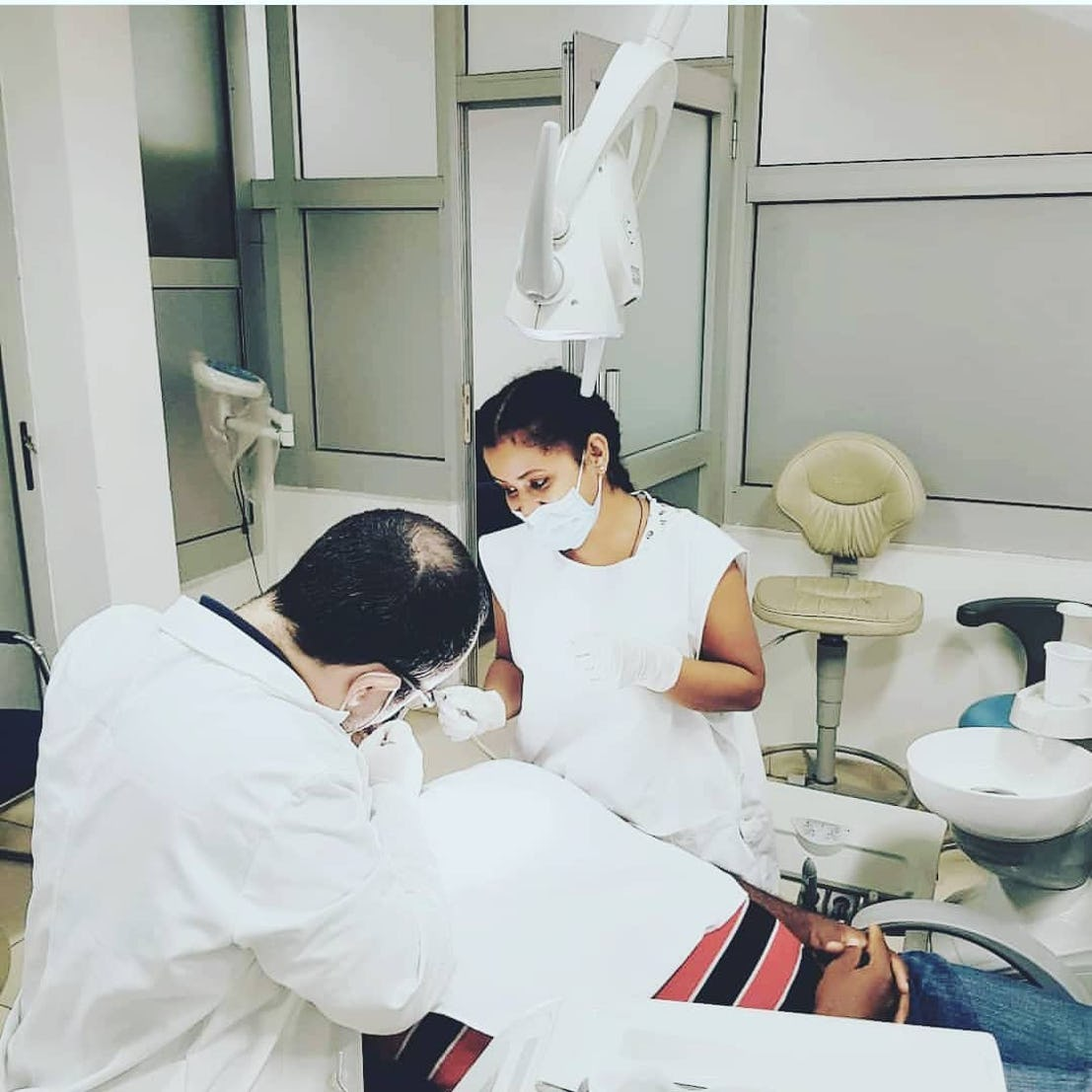
According to The Bump, oral hygiene is of the utmost importance when it comes to not only trying to have a baby but when it comes to being pregnant, too. Something such as gum disease can affect a woman’s overall health and studies have shown that it even has links to premature labor as well as the health of a baby. The crazy things are that poor oral hygiene can affect a man’s count as well, making pregnancy a serious challenge if both partners suffer from dental issues. Brushing your teeth twice and day and flossing regularly can keep you out of the dentist’s chair.
5. COUCH POTATO HABITS AREN’T GREAT, EITHER

Being a couch potato isn’t healthy, not just for those who are trying to have a baby. Not being active regularly can cause a myriad of things, such as eventual heart problems to increased fatigue and low energy. It’ll slow a woman’s metabolism down and could potentially lead to other issues such as overeating, joint problems, and a loss of muscle. Now of these are very promising for a potential mom, so to avoid them, something as simple as a daily walk or an hour of gym time three times a week can be helpful. Your baby will thank you for it!
4. BPA IS FOUND IN WATER BOTTLES AND ALSO SOMETHING TO BE WARY OF
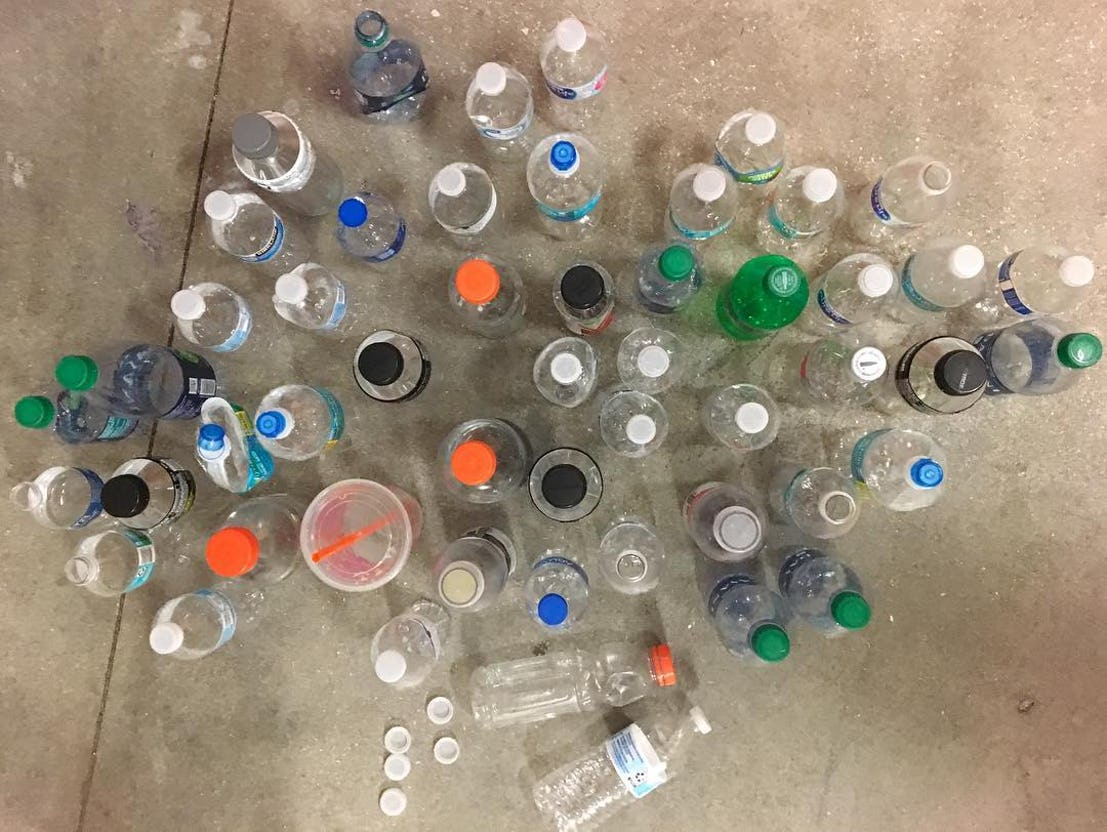
Many have heard of BPA before but not many know why it causes so many problems. BPA stands for bisphenol A, which is responsible for low fertility rates. The thing to be aware of is that BPA can be found in anything from aluminum cans to plastic water bottles, which is why using your own (safe) water bottle or glass is always recommended. According to The Bump, experts recommend avoiding canned foods if you’re trying to get pregnant, as well as plastic bottles with the numbers “3” or “7” on the bottom. This chemical can affect both men and women, so it’s an important thing for both partners to consider.
3. BE CAREFUL NOT TO EAT TOO MUCH FISH

High mercury counts are responsible for plenty of things, and having trouble conceiving is definitely one of them. For the record, it’s important to be wary of how much fish a woman consumes if she is pregnant, but the trouble can start long before that, too. High-mercury fish can cause fertility issues with both men and women, meaning no one is immune. Not to mention, mercury can actually remain in a person’s system for up to a year, which is obviously a problem for those trying to conceive in the near future. High-mercury fish include bigeye tuna, swordfish, mackerel, shark, and marlin.
2. NOT STRESSING IS SOMETHING NONE OF US ARE GOOD AT, BUT IT’S NECESSARY

Stress can change a person’s health completely and many don’t realize the damage they’re inflicting by stressing regularly. When doctors recommend reducing stress, they mean it… high-stress situations, especially when encountered daily, can take a serious toll on a person. Eventual health problems, in nearly every area of a person’s health, can begin to arise, and it’s usually due to this that infertility becomes the next issue. If a health issue can be traced back to stress, then the best thing to do is engage fully in self-care… you might not have a choice. Eliminating stressful situations (including toxic relationships, jobs, etc.) can completely change both our mental and physical states.
1. CERTAIN HERBS AND TEAS CAN INHIBIT THE ABILITY TO CONCEIVE

The natural world is fascinating and some even believe that it holds the cure for nearly anything we become inflicted with. Along with the give come the take-away, and infertility is part of that. Certain herbs can interfere with a woman’s ability to become pregnant and, according to Healthline, some of these are even used as a natural form of birth control. Although it’s rare and significant exposure would need to be present, some of these things are ginger root, wild carrot seed, thistle, and stoneseed root. If any of these is present in food or drink (teas, mainly), they should be removed from the equation to see if fertility rates increase.


